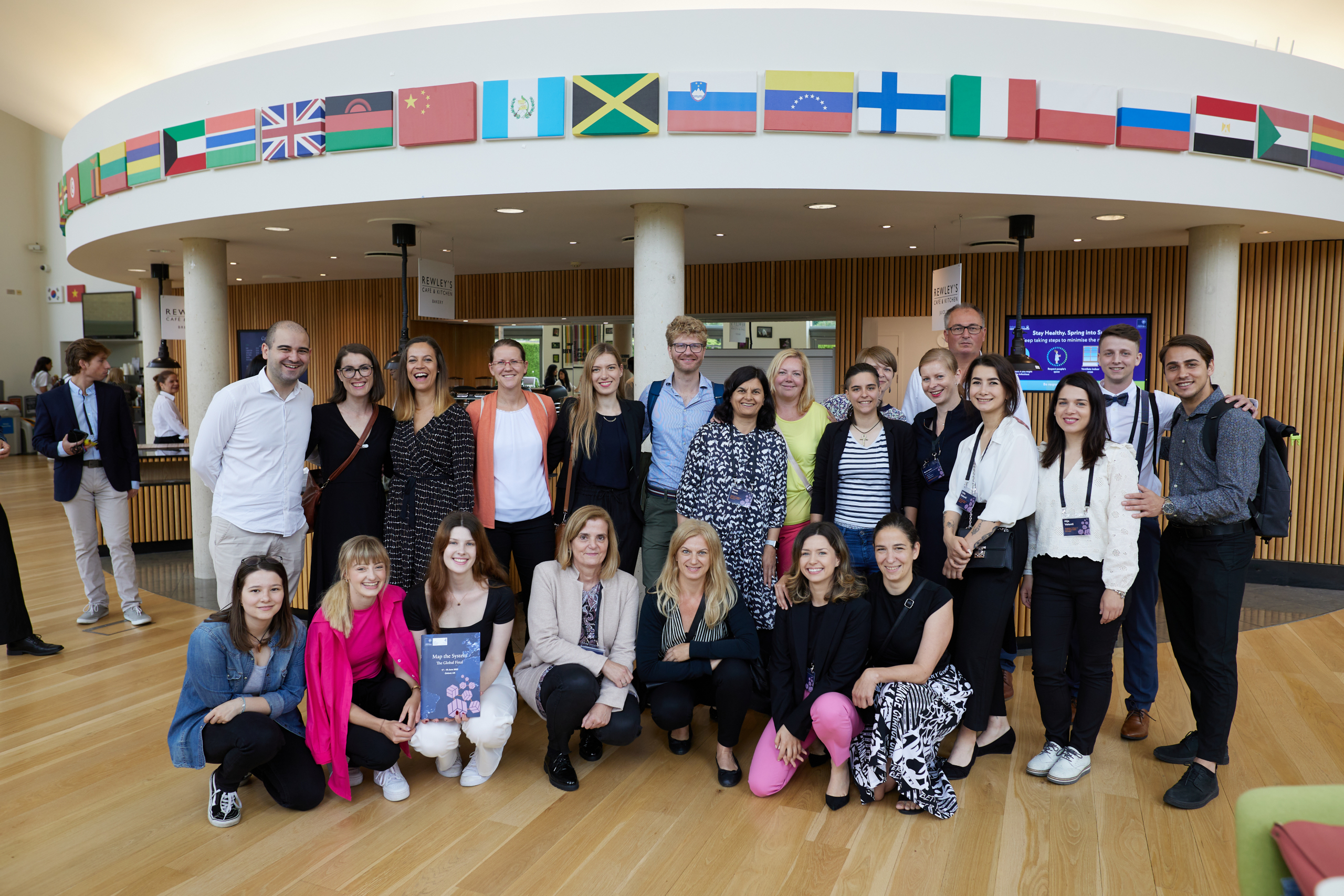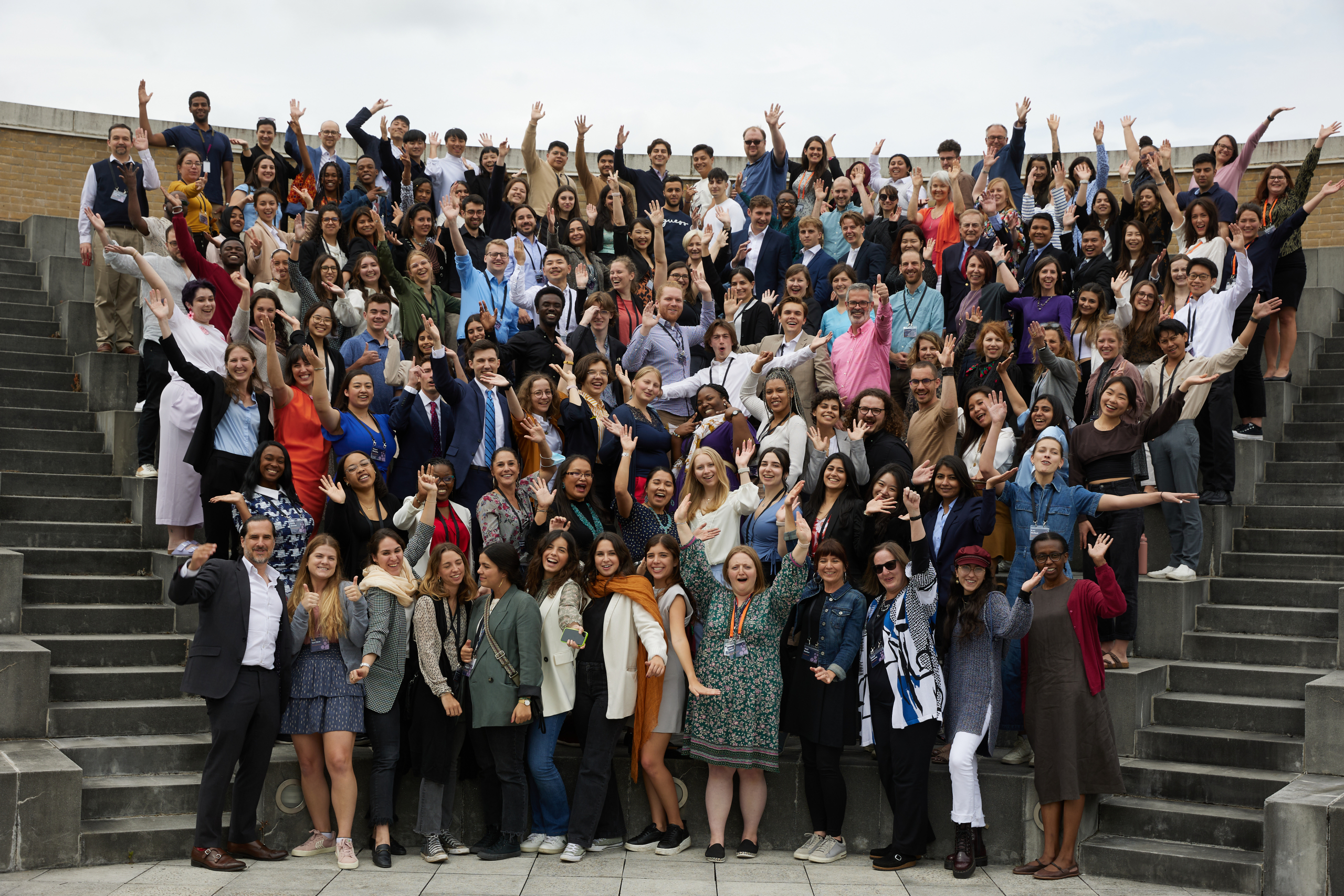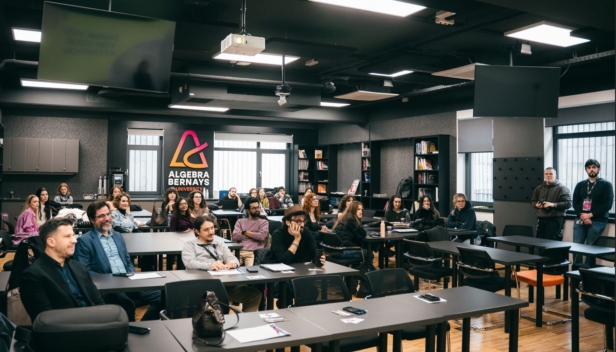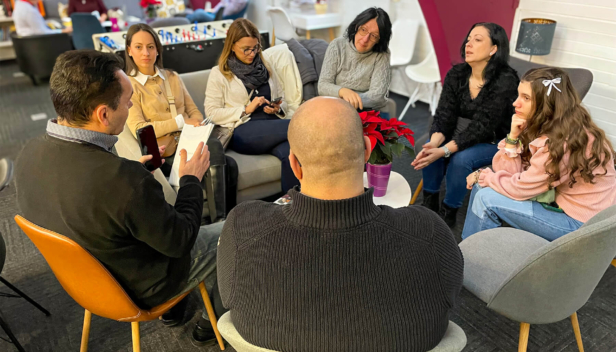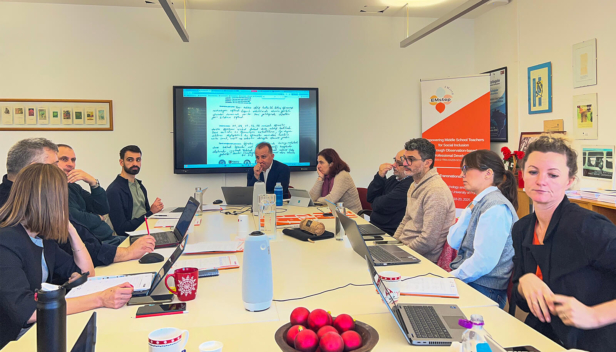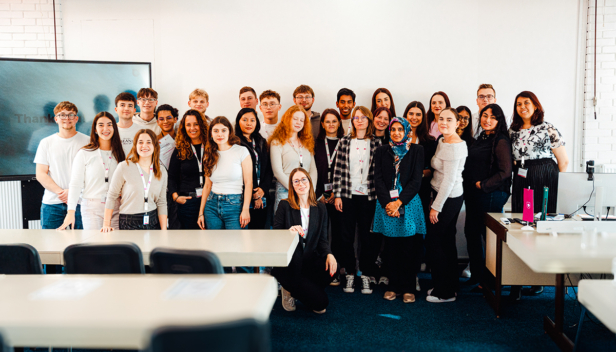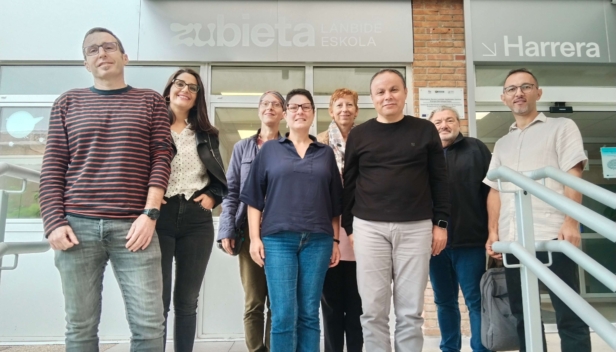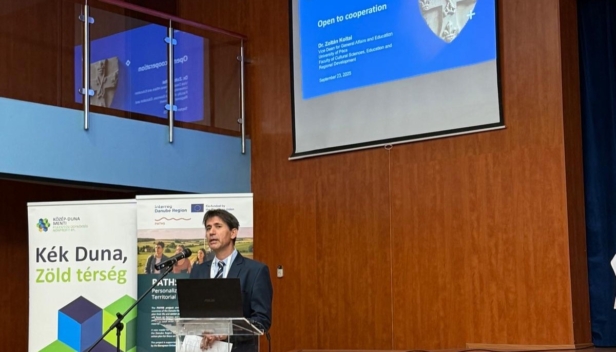Interview by Anja Šerc and Žan Dapčevič with Peter Drobac, Director of the Skoll Centre for Social Entrepreneurship at the University of Oxford
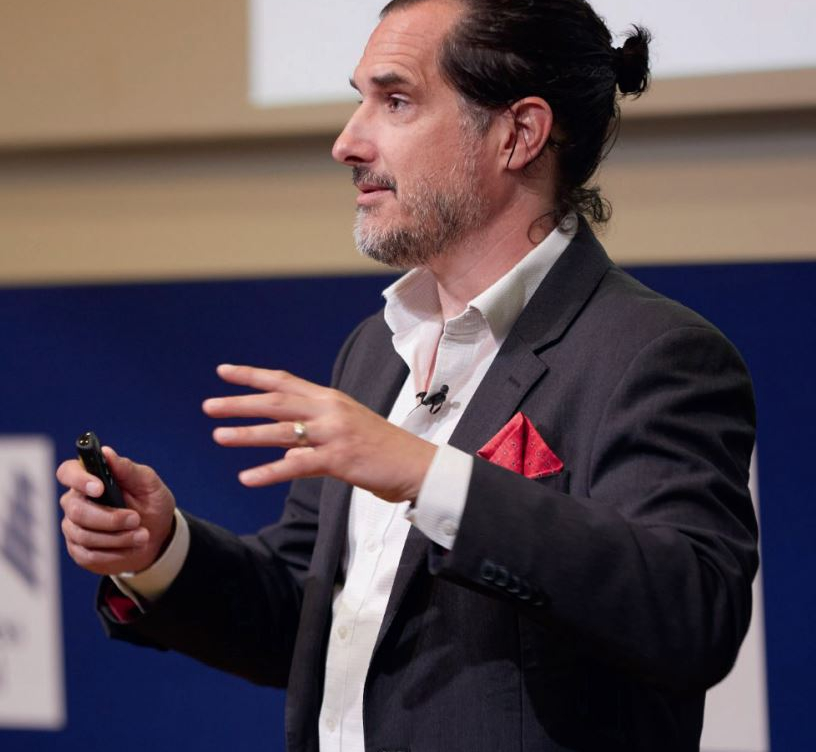
Dr Peter Drobac, a physician, global public health specialist and social entrepreneur, is the Director of the Skoll Centre for Social Entrepreneurship at the Said Business School. The Skoll Centre fosters social innovation by developing talent, promoting actionable insights through research and facilitating deep exchanges with a global community of innovators. In an interview with us, he revealed the importance of the systems thinking he teaches and the power of collaboration.
1. How does developing systems thinking skills help the modern world and what are other key skills for today’s complex world?
First of all, thank you for being here in Oxford, for bringing your team of students from Academia, and for all your support in bringing Map the system to Slovenia and bringing great incentives from Slovenia to the rest of the world. Systems thinking is a superpower. In the few years of organising this competition, we have learnt not only that we are all connected, that we are all interconnected, but that all our systems are also connected.
Think of how the current crisis in Ukraine has catalysed the food crisis in sub-Saharan Africa and inflation around the world… One conflict in one country actually has an impact, a reverberation, almost like a butterfly effect. This teaches us systems thinking, and if you do not look at it from this point of view, sometimes you want to try to solve one problem without being aware of what may happen in other areas, which may cause more harm than good. And so, in today’s world, we really believe that it is important to address the really big threats and challenges that we face: the climate crisis, the coming pandemic … And systems thinking allows us to see opportunities that others do not. Opportunities to build a better world.
2. Do you think that the skill of systems thinking is sufficient as such or do we need more in-depth knowledge?
I think this skill is essential, but of course not enough. Systems thinking allows you to understand and see the world in a new way and see opportunities, then there is still work to be done, to implement. And it is not a linear process. What I think is very important for developing a learning mindset is not to say: here is step 1, step 2, step 3, solved… But instead: here is the first step, we will learn from it and maybe change direction a little later because of it. And to get everyone into the mindset that the need to learn together is important. So collaborative learning.
And how to foster that collaboration? This is where values come in. You know a long time ago I did medical training for HIV and AIDS. What I saw and heard when I was working with children there is: this is a tragedy, but it is simply not possible to do treatment in these places. It is too poor, too few doctors, excuse after excuse after excuse. If you go back to our values and say that every child, every mother, every family deserves access to the same healthcare that you and I would want for our families.
If you start with that value, you cannot accept that excuse any more. And once we unite around that, then we must not say no, but ask: how? And so if you think about what are the values that unite us, where do we want to get to together, then we just have to find a solution. We have all the technology, all the ideas and all the tools we need to solve the climate crisis. It is just a matter of political will and cooperation and finding solutions.
3. You have been teaching Map the system for quite a few years now, teaching MBA and Executive MBA students systems thinking through the GO-TO module. What change do you notice in your students after completing this module?
I would have to ask you that, Jean, as a former student of mine, and it’s great to have you back in Oxford as an educator. Map the system has a few different objectives, teams work on social or environmental problems that they are very interested in and as a result they develop a deep understanding. Many then go on to start entrepreneurial projects, policy making and creating movements in their own communities. But there is another goal that seems more important to me: the students who come out of these programmes change the way they understand the world. So many problems seem too big, too complex, too insurmountable to think: where do I start? How can I change anything?
Map the system gives you the tools and the courage to say we will try to think and find a solution. We do not know everything, we are not experts, we just need to find a starting point where a small change can make a big difference. And everybody leaves this process with this mindset, and then they become the leaders of the 21st century. We are now a big community, we have tens of thousands of students who have participated in Map the system all over the world. And an amazing community of educators like Academia. So we learn from each other and build on each other.
4. In Slovenia, we participate in the Map the system competition, creating a unique collaboration between education and industry. We have brought together the health insurer Vzajemna with the consultancy BB Consulting and the academic institution Academia. So it was one collaboration. We met friends from Israel and other places, a wonderful example of Cape Town today… What do you think is the strength of this collaboration and what is the success factor in this collaboration?
Firstly, all these big problems that we are facing, for example the Sustainable Development Goals, are all too big for any one institution to solve on its own.
We have learned this with COVID 19. National governments, even international bodies, cannot do it alone, they all have to come together. They need the cooperation of business, the civil society community and governments. They all have their strengths and we know that our political leaders are sometimes not quite up to the task. And that is when we need others to step in and show the way forward. And so the real power of collaboration is that 1+1 = 5.
When you come together in the right way, you are more than the sum of your parts, you do things you could not do alone. Thus I think the power of attracting companies is the ability to move fast, to innovate and also to achieve scale. It is good to see that more and more companies understand that they cannot separate their financial success from what is happening in their communities, environments, etc. When they take a step even beyond ESG and understand that they really need to be part of the solution. As our Chairman of the Board, Paul Polman, likes to say: we need to build an environment where companies serve by solving the world’s problems, not by creating them. And collaboration is a big part of that.
5. You are a doctor by profession, what do you think is the biggest challenge facing healthcare today? And a sub-question, since you work in education, what do you see as the biggest challenge in today’s education system?
Equity, we need a health system that works well for all. COVID was a great example of that. Over the last few years we have heard over and over again: none of us is safe until all of us are safe. And a pandemic is just a badly managed outbreak of a disease.
I am privileged to live in the United Kingdom and the fact is that we have a wonderful National Health Service. But that does not mean that we can be complacent when others in poor communities, in other countries around the world, do not have access to quality healthcare. Not just any healthcare, but quality healthcare. What it creates not only allows us to achieve the same results that we would want for ourselves, but it allows us to be resilient and prepared for the next crisis.
The cities that were best at responding to COVID 19 already have these systems in place and everyone has had access to them. Rwanda, where I worked for a long time, has a network of 50 000 community health workers. Every village in the country that was part of the health system when the COVID threat started was mobilised in their communities.
Educating neighbours, distributing food to poor families affected by quarantine, etc. We know that we have innovation, technology, etc., but it is not reaching the people who need it most. That is why we need to go back to our core values and say: doing the right thing, giving access to all, is the smart thing to do, and it helps us in the long term. For education, I think it is somewhat the same.
I think that a billion and a half children have been out of school at some point in the last few years, and many of those children are still not back in school. And that will have a generational impact. On their earning capacity, on their mobility, on the GDP of many countries… The problem has existed before and it is only going to get worse. But I think there are real opportunities to think about how we can use technology differently. And also to think about what needs to change, not just how we educate, but what we include in education.
Children and young people are often trained for jobs that do not yet exist. So we need to think about different types of skills. You can access any fact instantly on Google. So maybe it is no longer so important to teach children to memorise facts, but to teach them how to learn how to think, to think critically, to communicate, to collaborate, to be entrepreneurial, to build things … These are the skills that I believe should be at the heart of education, because they position people for a future that is still being built.
6. We hope to be able to continue the competition and welcome you to the local final next year in Slovenia. Before that, what is your message to the Slovenian group?
Thank you to everyone who participated this year. I hope you had as much fun as we did. I learned a lot from you and I would say that next year the competition will be even bigger and better. Having got to know you over the last few months, I have learnt a lot about Slovenia and I can see that there is a really strong focus on sustainability, that it is a small country with a lot of pride and enthusiasm for innovation. So I think Slovenia could be a model for the rest of Europe on how systems thinking can really drive progress. So let’s think big and let’s do some good things together!


